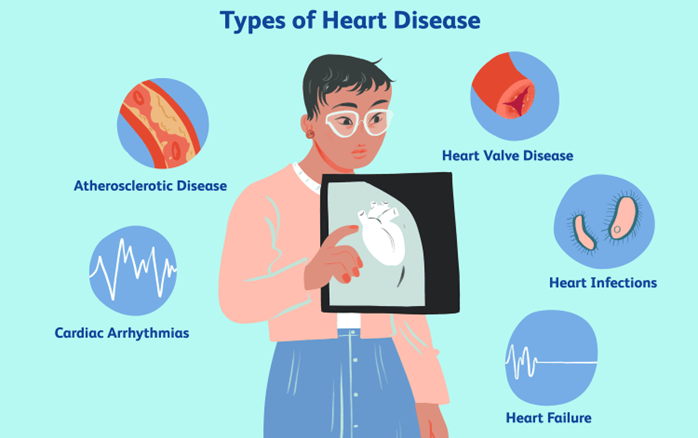A nurse is leading a discussion about contraception with a group of 14-year-old clients. After the presentation, a client asks the nurse which method would be best for her to use. Which of the following responses should the nurse make?
"A provider can help you with that after a physical examination."
"You are so young. Are you ready for the responsibilities of a sexual relationship?"
"Because of your age, I think that a barrier method would be the best choice."
"Before I can help you, I need to know more about your sexual activity."
The Correct Answer is D
Choice A: This response suggests that a physical examination is necessary before providing contraceptive advice. While a healthcare provider may conduct a physical examination as part of comprehensive care, making it a prerequisite for discussing contraception can create barriers for adolescents seeking information. Emphasizing a physical exam may deter open communication, as adolescents might feel apprehensive or judged. Effective contraceptive counseling should prioritize building rapport and understanding the individual's needs and concerns before proceeding to clinical
Choice B: "You are so young. Are you ready for the responsibilities of a sexual relationship?" This response is inappropriate and judgmental because it implies that the client is too immature or irresponsible to have a sexual relationship. It also discourages the client from seeking help or information from the nurse and may make her feel ashamed or guilty about her sexuality.
Choice C: "Because of your age, I think that a barrier method would be the best choice." This response is inappropriate and paternalistic because it assumes that the nurse knows what is best for the client without considering her individual situation or preferences. It also limits the client's options and may not address her specific needs or concerns.
Choice D: This response is appropriate as it seeks to gather more information about the adolescent's sexual activity, which is crucial for providing tailored contraceptive advice. Understanding the individual's sexual behavior, frequency of activity, number of partners, and risk factors allows the healthcare provider to recommend the most suitable contraceptive methods and address any concerns about sexually transmitted infections. The Centers for Disease Control and Prevention highlight the importance of personalized counseling that takes into account the adolescent's specific circumstances to promote effective contraceptive use and sexual health.

Nursing Test Bank
Naxlex Comprehensive Predictor Exams
Related Questions
Correct Answer is B
Explanation
Choice A: Cancer is not the correct answer because it is not the leading cause of death among women. According to the World Health Organization, cancer accounted for 15% of all deaths among women in 2019.
Choice B: Heart Disease is the correct answer because it is the leading cause of death among women worldwide. According to the World Health Organization, heart disease accounted for 21% of all deaths among women in 2019. Many women are unaware of the risk factors and symptoms of heart disease, and may not seek timely medical attention. Therefore, educational programs that raise awareness and promote the prevention of heart disease are a priority for women's health.
Choice C: Diabetes is not the correct answer because it is not the leading cause of death among women. According to the World Health Organization, diabetes accounted for 4% of all deaths among women in 2019. However, diabetes can increase the risk of developing other complications such as heart disease, kidney disease, and blindness. Therefore, educational programs that teach women how to manage their blood sugar levels and prevent complications are important for women's health.
Choice D: Smoking is not the correct answer because it is not a condition, but a risk factor for many diseases. Smoking can increase the risk of developing lung cancer, heart disease, stroke, and chronic obstructive pulmonary disease. Therefore, educational programs that help women quit smoking and avoid exposure to secondhand smoke are beneficial for women's health.

Correct Answer is ["0.8"]
Explanation
- To find out how many mL to administer for a medication dose, we need to use this formula: mL = (dose in mg) / (concentration in mg/mL)
- In this formula, the dose in mg is the amount of medication ordered by the provider, and concentration in mg/mL is the strength of medication available in the vial or syringe.
- We plug in the given values into this formula: mL = (30 mg) / (40 mg/mL)
- We simplify and solve this equation: mL = 0.75 mL
- We round off to the nearest tenth: mL = **0.8 mL**
- We add a leading zero if needed: mL = **0.8 mL**
- We do not add a trailing zero: mL = **0.8 mL**
Whether you are a student looking to ace your exams or a practicing nurse seeking to enhance your expertise , our nursing education contents will empower you with the confidence and competence to make a difference in the lives of patients and become a respected leader in the healthcare field.
Visit Naxlex, invest in your future and unlock endless possibilities with our unparalleled nursing education contents today
Report Wrong Answer on the Current Question
Do you disagree with the answer? If yes, what is your expected answer? Explain.
Kindly be descriptive with the issue you are facing.
